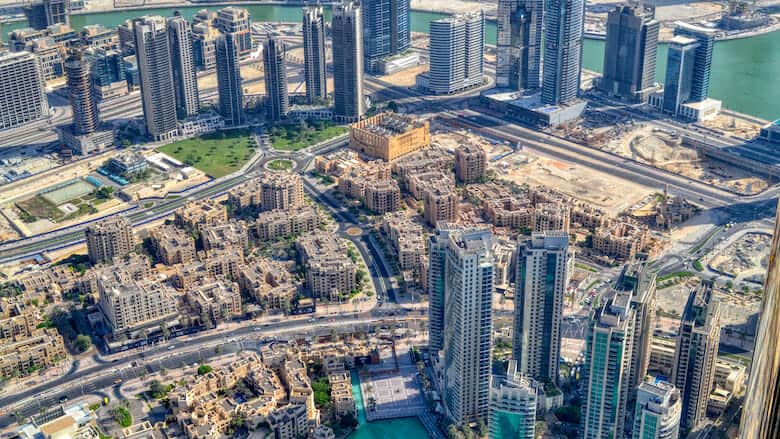Despite the disruption caused by the coronavirus lockdown Dubai and Abu Dhabi have continued to advance in the race to become the global hub for business, a new report by management consultancy Kearney indicates.
The 2021 Global Cities Report ranked Dubai as the 23rd top city in the Global Cities Index (GCI), climbing four places from the 27th position last year. The city also leads the Middle East and North Africa (MENA) region in the index, while Abu Dhabi secured the fourth spot in the Global Cities Outlook (GCO), rising three places from the seventh position last year.
The report, which covers 156 destinations around the world, features two rankings, the GCI, which looks at the current performance of a city, and the GCO, which gauges the city’s future prospects.
The GCI analyses how globally engaged cities are in terms of business activity, human capital, information exchange, cultural experience and political engagement, while the GCO ranking is a forward-looking evaluation based on 13 indicators and looks at how the cities are creating conditions for their future status as global hubs.
Among the cities reviewed for the index, Doha showed a stellar performance, rising 15 places – the biggest jump globally for any city – following the restoration of diplomatic ties between Qatar and its neighboring Arab countries.
Overall, 21 cities in the Middle East and North Africa (MENA) region climbed six or more positions in the GCI ranking compared to last year. Cairo ranked fourth in the MENA region, followed by Riyadh.
Leading the MENA region, Abu Dhabi has been credited for its continued focus on providing accessible, high-quality healthcare and commitment to reducing its environmental impact, which is core to the study’s personal well-being dimension.
Dubai also climbed in the same index to the 15th place, up three places from the 18th position last year.
“In MENA, GCC economies, particularly the UAE and Saudi Arabia, are poised to lead regional recovery supported by accelerated efforts of their governments across the five main dimensions of the report,” said Antoine Nasr, Partner, Government Practice Leader, Kearney Middle East.








